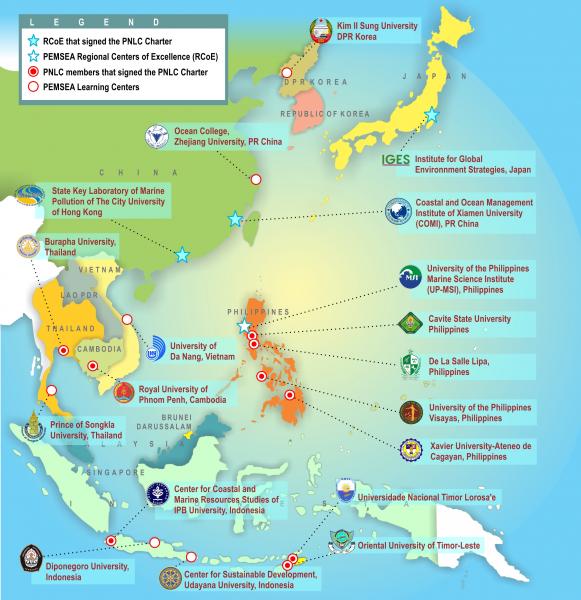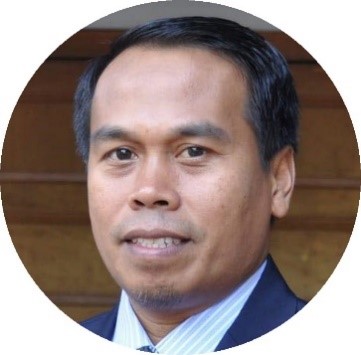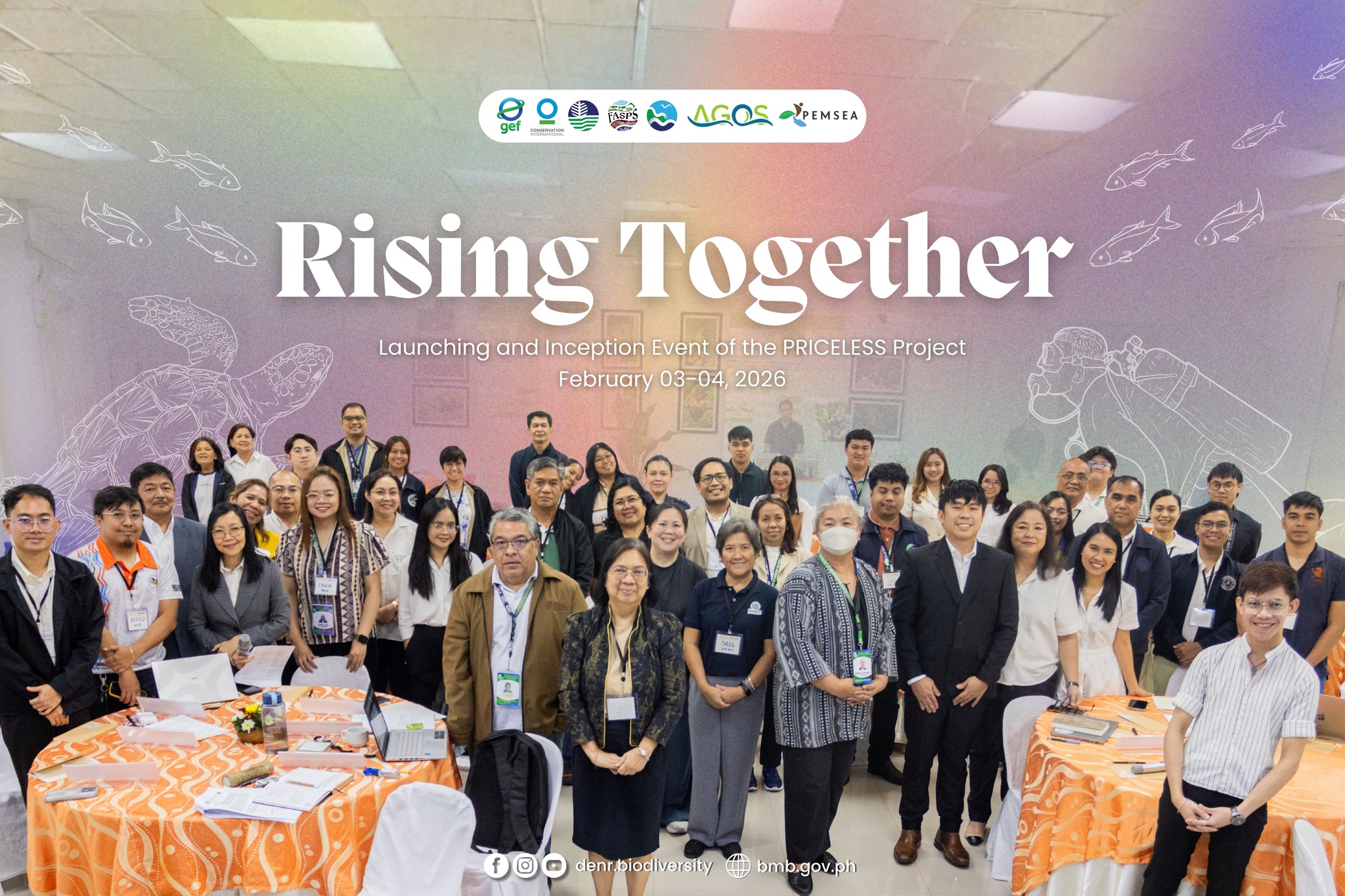Establishment of the PNLC Secretariat at IPB University
Monday, 24 October 2022

A primary goal of PEMSEA (Partnerships in Environmental Management for the Seas of East Asia) as a regional platform is the exchange of data, information, and knowledge among relevant coastal and marine stakeholders, and the building of ocean governance capacity. This facilitates the implementation of Integrated Coastal Management (ICM) and other aspects of the shared “Sustainable Development Strategy for the Seas of East Asia (SDS-SEA)” at regional, national, and local levels.
There is increasing international focus on science-based management approaches, such as within the ongoing UN Decade of Ocean Science for Sustainable Development. Global challenges such as meeting the UN Sustainable Development Goals (SDGs) will require an intensification of research and collaboration, tackling capacity development needs and exploiting opportunities in support of blue economy development. Links between leading universities and research institutions is a key part of generating the knowledge and material needed to support and inform policies and program at the national and local levels.
PEMSEA has partnered with several universities and research institutions across the East Asian Seas (EAS) Region to provide scientific input, training, and technical support to national and local governments in the development, implementation, and scaling up of ICM programs. Since 1993, these PEMSEA Learning Centers have been key partners in improving sustainability in the region.
PEMSEA initially collaborated through activity- or project-specific agreements to support the capacity building and technical needs of its ICM demonstration sites. As the ICM sites increased in number and coastline coverage, PEMSEA developed a more formal cooperation mechanism with key academic and scientific partners in the region in 2008. In 2015 the various relationships were brought together under one platform, the PEMSEA Network of Learning Centers (PNLC).
This network links the institutions under a common platform through which they can engage in knowledge sharing and promote good practices relevant to the sustainable development of coasts and oceans. Each institution assists with on-the-ground transfer of ICM practice, knowledge, tools, and methodologies, and plays a vital role towards the sustainable development of marine and coastal areas through their education, research, and extension services.
At the 2021 EAS Congress, ten PNLC members signed the PNLC Charter. This formalized the establishment of the regional network, crafted membership requirements, identified joint activities and outputs, and put forward options to ensure the sustainability of the network’s operations. Since then, others have joined the network or have registered their formal interest. Currently, the PNLC is comprised of 18 PEMSEA ICM Learning Centers and 4 Regional Centers of Excellence (RCOEs) from nine countries in Asia.
Adoption of the Secretariat by IPB University
On 25 September 2022, IBP University, through its Center for Coastal and Marine Resources Studies (CCMRS) based in Bogor, Indonesia, agreed to host and serve as the PNLC Secretariat from 2024 onwards. The PEMSEA Resource Foundation will continue to provide secretariat services until this point.
IPB has been working with PEMSEA since 2008, and is now one of three PNLC members located in Indonesia. Their work includes knowledge sharing and capacity-building programs for the ICM work of the Indonesian government, both in cooperation with PEMSEA and in other projects.
The work with PEMSEA has included support for national policy and institutional arrangements such as the preparation of the National State of Ocean and Coasts 2018 report, which covered the development of blue economy in Indonesia, and the SDS-SEA Implementation Plan for Indonesia.
On the ground they have supported ICM implementation in Tangerang, Sukabumi, and East Lombok regencies, as well as in the city of Bontang. In these locations they have mapped vulnerable areas, provided disaster risk reduction planning, facilitated mangrove replanting, supported sea turtle conservation, establishing coastal zoning and marine protected areas, provided alternative livelihood development assistance, assisted with the planning of a wastewater treatment plant, engaged in river and beach cleanup programs, and supported monitoring and knowledge management.
Beyond their work in PEMSEA they have facilitated the development of ICM roadmaps, developed local State of the Coasts reporting and helped build the resulting profiles, conducted training and other technical support activities, assisted with post-tsunami recovery, disaster risk reduction measures, and work on marine spatial planning.

DR. YONVITNER, President of the PNLC and Director at CCMRS, IPB University
The President of the PNLC is Dr. Yonvitner, Director of the Center for Coastal and Marine Resource Studies (CCMRS) in IPB University. Dr. Yonvitner has held numerous leadership roles in IPB University, such as those related to disaster studies and management, agro-maritime research, and at the Rector’s Office.
He has also been engaged in various national and subnational working groups and projects on ICM, fisheries management, seafood ecolabeling, mangroves, and maritime investments. His research interests include marine pollution, fisheries biology, population dynamics, and coastal and marine resource management.
He received his PhD in coastal resources management, a Master of Science degree in natural resources management and environment, and a Bachelo degree in aquatic resource management from IPB University. He received his postdoctoral degree from Universitat de Girona in Spain.




